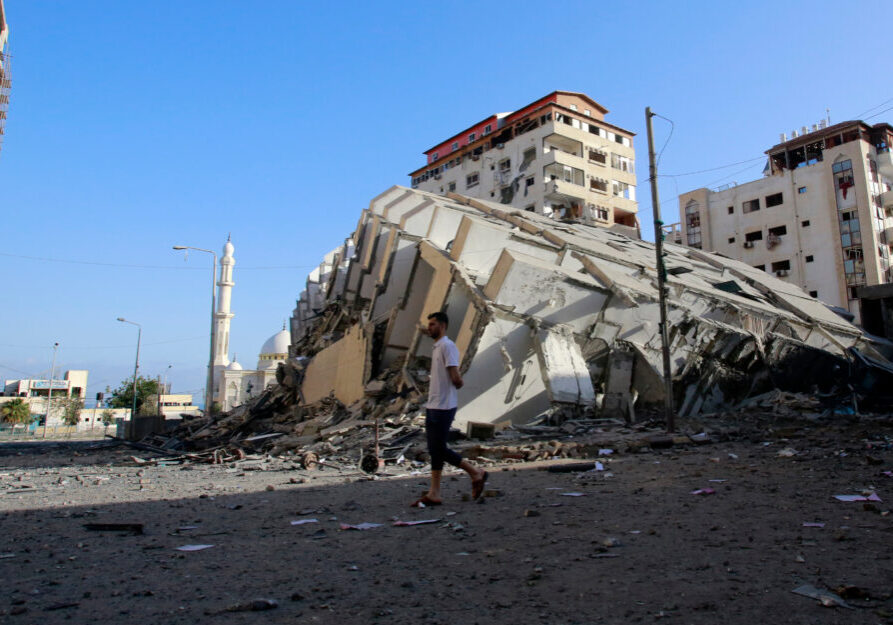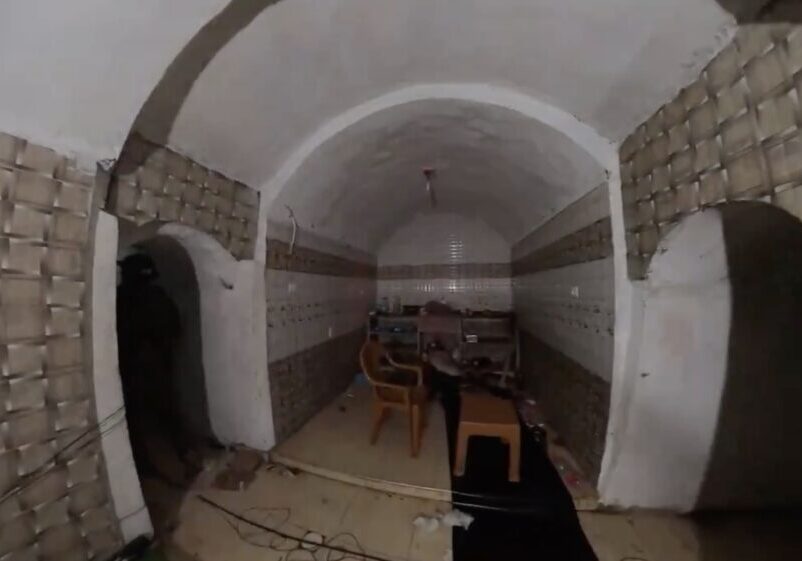Australia/Israel Review
Future Tense in Beirut
Jun 24, 2008 | Yehonathan Tommer
By Yehonathan Tommer
The Doha Agreement in May ended Lebanon’s 18-months of political crisis and paved the way for army chief General Michel Suleiman, a 60-year old Maronite Christian, to be swiftly elected to the presidency. For Hezbollah, with its coalition of pro-Syrian allies, it achieved what they have long sought – a “government of national unity” in which Hezbollah would have a veto on all significant decisions.
The agreement was spurred by a week of bloody fighting in mid-May, the worst since the civil war of 1975-90. Hezbollah militias took over most of Beirut in reaction to a government decision to ban the organisation from operating an independent communications system and controlling security at Beirut’s international airport.
According to the agreement, mediated by the Arab League and endorsed by Damascus, the Hezbollah-led opposition won its key demand for 11 of the 30 cabinet seats in a new national unity government. This gives the organisation a constitutional one third of votes needed to veto government decisions.
The Doha Agreement restored a tense quiet to Lebanon, pulling its rival ethnic communities back from the brink of a slide to an unwanted civil war. But, in the longer term, most experts agree it represented a major step forward in Hezbollah’s creeping efforts to assert hegemony over the country. AIR spoke to a number of top experts to get their views on the aftermath and implications of the new situation in Lebanon.
Hezbollah’s recovery and rearmament
Hezbollah has nearly fully recovered from the war with Israel in July 2006, it has been widely reported. It has rebuilt an arsenal of some 80,000 short to long-range improved, Iranian-manufactured Katyushas and other rockets, according to the organisation’s leader Sheikh Hassan Nasrallah. This figure is confirmed by Israeli intelligence and by UN Special Envoy Terje Roed-Larsen in a June 2007 report to the United Nations Security Council. The rockets are being supplied at a “disturbing and steady flow across the Syrian border” and some have a range that extend into Israel as far south as Beersheba.
Most experts agree that Hezbollah still needs considerable time to rebuild its trained military manpower, ground forces and network of underground bunkers destroyed in 2006. The process of rebuilding is all supervised by instructors from the Iranian Revolutionary Guards embedded in Hezbollah units. It also needs further time to rehabilitate a heavily destroyed social and economic infrastructure in the south and in Beirut and to fully regain its popularity and credibility after setbacks of the past year – including the knock its reputation as a “national resistance movement” took after turning its guns on other Lebanese political parties in May and the assassination of its top terrorrist operative Imad Mughniyeh in a car bomb in Damascus in late 2007.
“Hezbollah continues to present a tactical, but not an immediate threat, to Israel,” says David Schenker, a senior fellow and Director of Arab Politics at the Washington Institute for Near East Policy. The Lebanese majority “would not tolerate a Hezbollah dictate,” and Hezbollah’s opponents constitute 40% of the population in the south, he says. No faction really wants another civil war.
But Schenker does not exclude a strike against Israel in retaliation for Mughniyeh’s assassination or to reassert its legitimacy with the Lebanese people after the bloody invasion of Beirut.
Non-relevance of UNIFIL
UNIFIL, the UN force in southern Lebanon that was given expanded capabilities and wider responsibilities after the 2006 Hezbollah-Israel war, does not offer Israel a “credible” buffer, according to experts. Since its three clashes with Hezbollah units, contingents of the interim peace-keeping force in Lebanon (mandated by Security Council Resolution 1701, passed in August 2006) are cooperating with Hezbollah, says Dr. Eyal Zisser who directs Tel Aviv University’s Moshe Dayan Centre for Middle East and African Studies, and is a noted specialist on Lebanon and Syria.
“Hezbollah operatives are resident civilians out of uniform and they are helping to restore positions and underground fortifications. UNIFIL does not interfere with their activities and does not attempt to curtail the flow of arms from Syria.”
The multinational force will leave Lebanon once Hezbollah decides UNIFIL must go, says Zisser.
Tense Quiet
The Lebanese Army is also not a deterrent against Hezbollah, according to Zisser. With 60% of its manpower Shi’ite, the generals will shun future confrontations to avoid disintegration and entire units deserting to Hezbollah. “Siniora was cautious not to antagonise Nasrallah before the bloody clashes in Beirut and future Lebanese prime ministers will behave no differently,” says Zisser. “He will back down from any serious military confrontation and capitulate to Hezbollah’s demands. American and French backing doesn’t materially help pro-Western elements on the streets of Beirut or in the Beqa’a valley.” In these areas, including the south, Hezbollah commands a majority.
Siniora’s government can continue to rule as long as no faction takes drastic action to change the status quo, says Zisser.
Dramatic developments in Lebanon are unlikely this year, though Hezbollah’s influence will grow incrementally as its position strengthens, says Bar Ilan University Lebanon specialist Mordechai Kedar. “In June 2000 I wrote in Haaretz and Yediot Ahronot that the next Lebanese president will be Hassan Nasrallah. Well, in practice, it’s already come to that.”
Hezbollah will avoid legislating Sharia Islamic law. This is to placate non-Shi’ite factions who blame Nasrallah for provoking Israel to war and to assuage Syrian suspicions that Hezbollah may be encouraging the demands of the Syrian Muslim Brotherhood.
Syria doesn’t have to deploy troops in Lebanon to defend its interests, says Kedar. With a pro-Syrian government installed in Beirut, as long as Hezbollah does not pursue a private (Islamic) agenda, Lebanon’s orientation toward Syria is assured.
Kedar also dismisses European intervention to oust Hezbollah from power, saying, “It’s not on the cards.” It would precipitate certain violent demonstrations among their own significant Muslim communities and initiate a wave of Iranian-sponsored terrorism, he believes.
The Doha deal allows the US and French to pursue a political solution to the factional and ethnic conflicts. It restores a shaky status quo, but for how long is anyone’s guess, says Moshe Marzook, a former Israeli military intelligence officer and Lebanese research specialist at the Herzliya International Institute for Counter Terrorism. “Neither the West nor moderate Arab states nor even Hezbollah wants the unrest in Lebanon to explode just now.”
After failed US attempts at military intervention in 1958 and again in 1982 he is sceptical that anything can be done to halt Hezbollah’s increasing dominance over Lebanese politics. Neither Europe nor a US overstretched in Iraq and Afghanistan are willing to plunge for a third time into the Lebanese quagmire.
“Hezbollah is patient. The Shi’ites waited a thousand years for their turn to rule. They can wait a little longer,” says Marzook. “They know that in time Lebanon will fall into their hands.”
Tags: Israel






